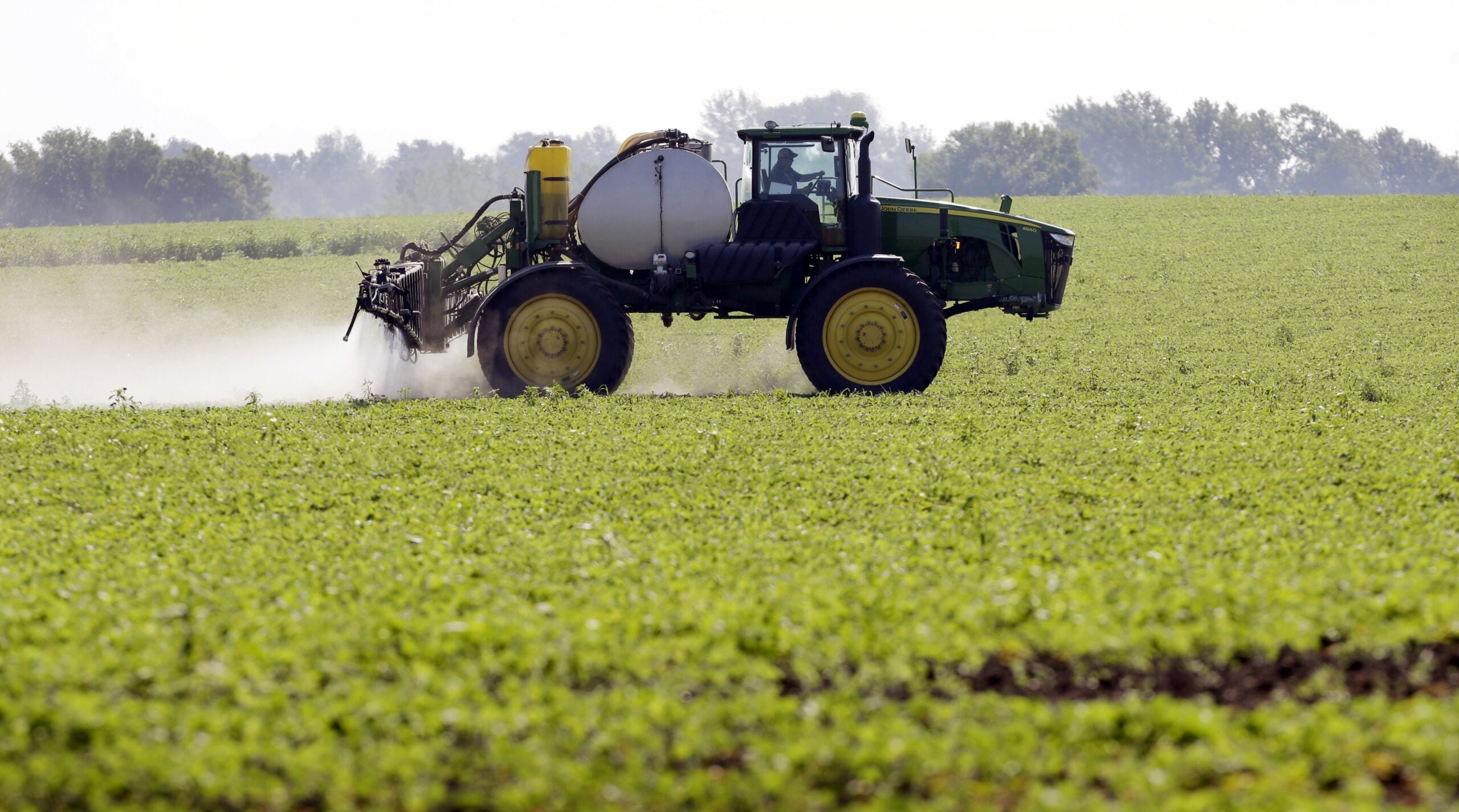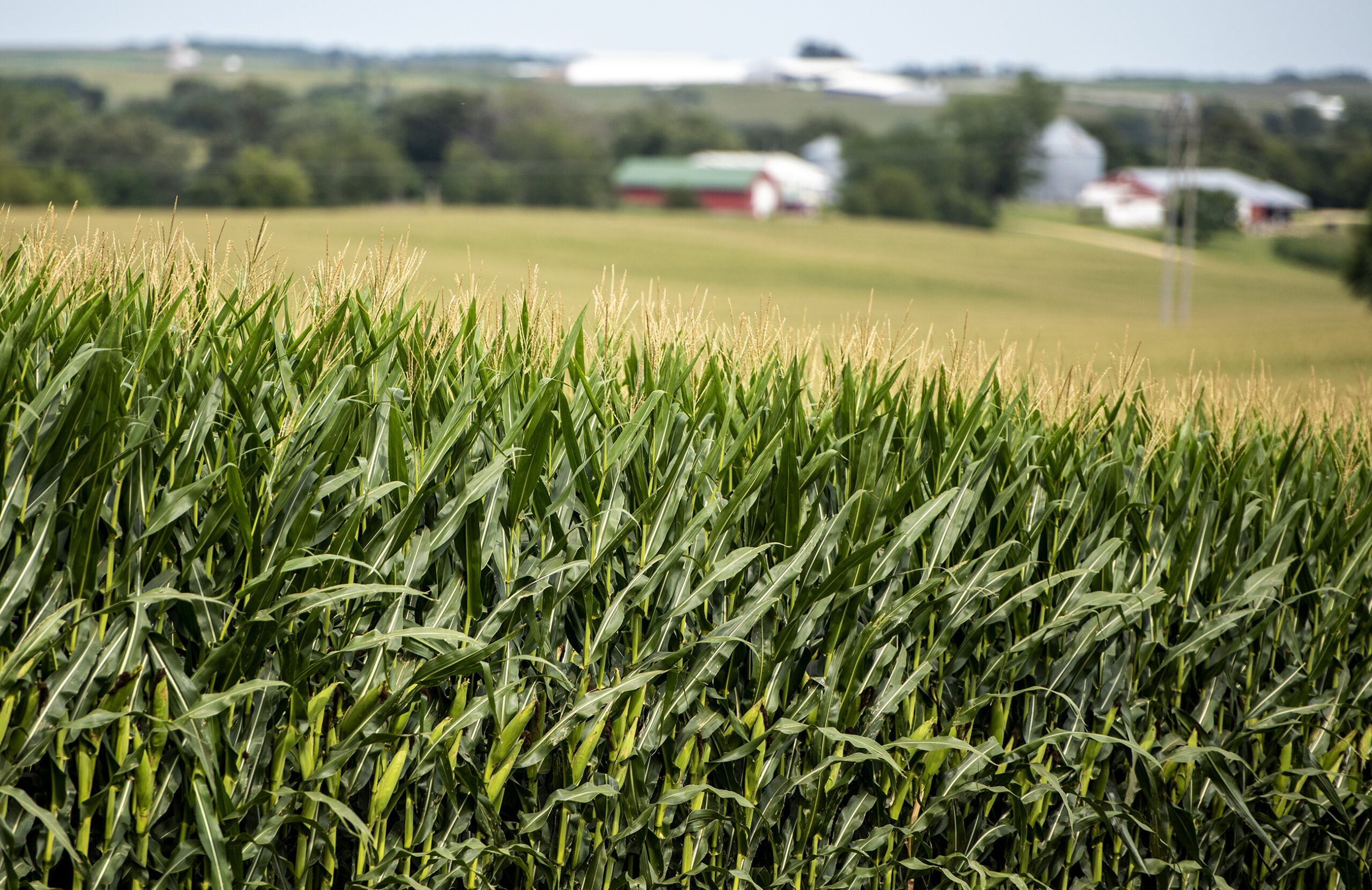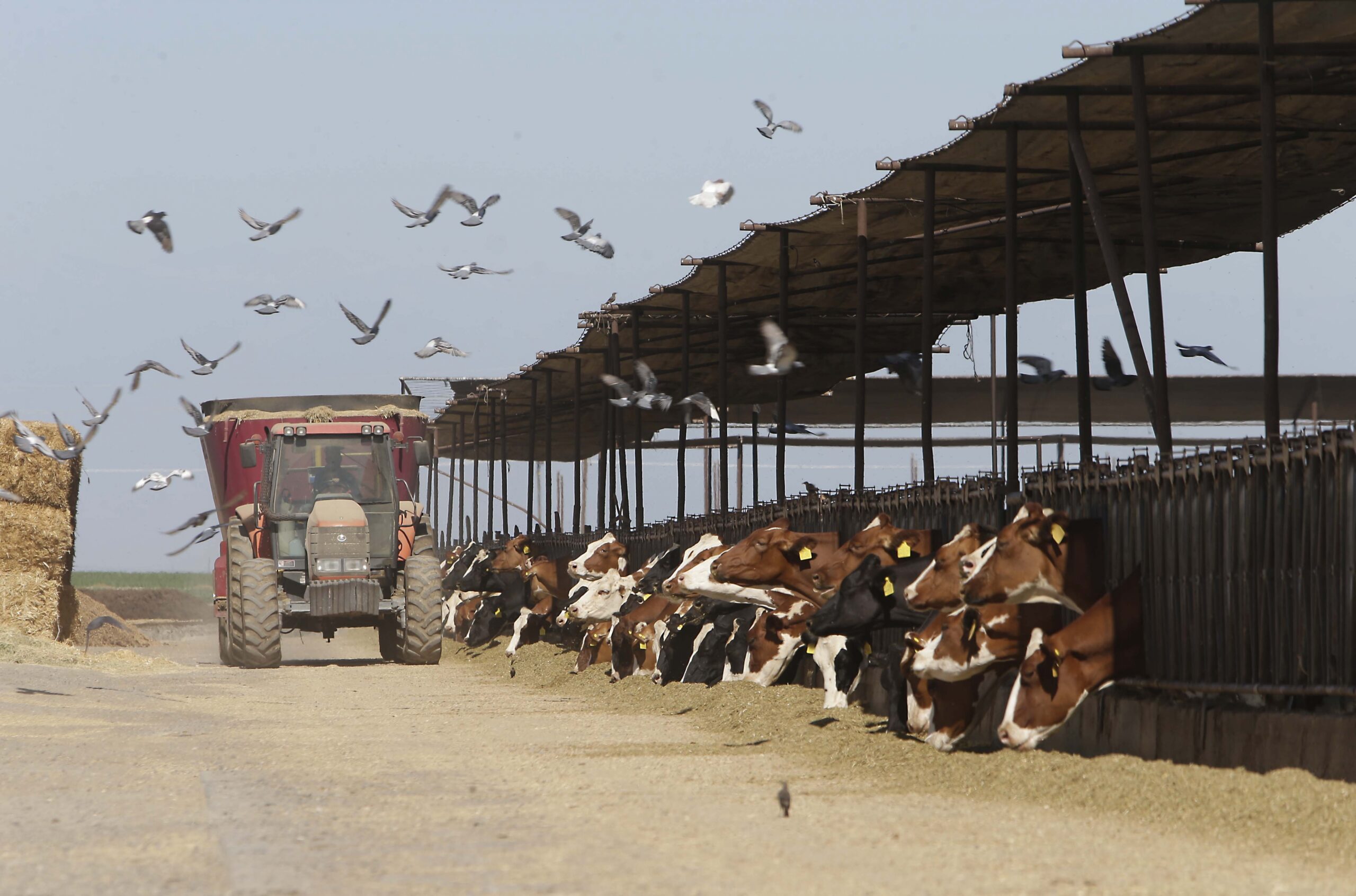Wisconsin corn growers are concerned about the future of the herbicide atrazine after the U.S. Environmental Protection Agency released new findings about the chemical’s potential risks to plants and wildlife.
U.S. Sen. Ron Johnson’s senate committee held a field hearing in Iowa on Wednesday to talk about the impact of federal regulations on the ag industry.
Jim Zimmerman, member of the Wisconsin Corn Growers Association, testified at the hearing about the importance of atrazine for his farming and how stricter rules from the EPA could impact his farm.
Stay informed on the latest news
Sign up for WPR’s email newsletter.
“Atrazine is just one part of the tools that we need, and we need all of them,” Zimmerman said.
According to estimates from a University of Chicago study, Zimmerman said not using the herbicide could cost corn growers an additional $60 per acre.
The EPA previously ruled that atrazine was safe to use. Zimmerman said the agency’s new stance sets a dangerous precedent for farmers.
“If you can take product that has been proven safe and used for over 50 years and you can greatly minimize it, you can do anything,” Zimmerman said.
But Mark Kastel from the Cornucopia Institute, an organic industry advocacy group, said there have been many studies over the years highlighting the negative effects of atrazine on human and environmental health. The European Union banned the herbicide in the early 2000s over concerns of water contamination.
Corn growers said atrazine is important for conservation tilling methods, an important practice to reduce soil runoff in many areas of the state.
But Kastel said farmers need to adapt a more holistic approach to conservation.
“Using biocides, poisons, in our environment to be able to protect one element, and that would be soil conservation, which is a meritorious goal, that doesn’t make a lot of sense,” Kastel said. “There are other systems and there are organic farmers who use no till without any herbicides.”
While not using atrazine will be more expensive for farmers, Kastel said the money is made up in reducing the cost of healthcare and environmental remediation.
The EPA is taking public comment on the new risk assessment through October 4.
Wisconsin Public Radio, © Copyright 2024, Board of Regents of the University of Wisconsin System and Wisconsin Educational Communications Board.






